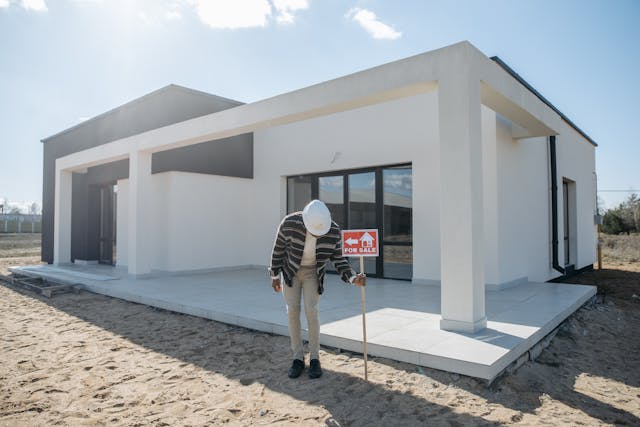Building a successful corporate housing business can be highly profitable, but it takes strategic planning, attention to detail, and a strong understanding of what corporate clients want. Corporate housing involves offering fully furnished, short-term rentals to businesses for employees, contractors, or executives who need accommodations for weeks or months at a time. Unlike traditional rentals or vacation properties, corporate housing focuses on convenience, comfort, and professional service. Let’s dive into the key steps to building a corporate housing business from scratch and how to set yourself up for long-term success.
1. Understand the Corporate Housing Market
Before you start any business, market research is essential. Corporate housing serves a specific type of client—business professionals, companies relocating employees, or temporary workers who need a stable, home-like environment without the hassle of long-term leases. You need to understand their needs, preferences, and expectations.
Start by looking at your local market. Is there demand for corporate housing in your area? This could come from large corporations, hospitals, universities, or industries that often bring in temporary workers or consultants. Get a clear sense of who your potential clients are and what kind of amenities or services they’ll expect.
Look at competitors already offering corporate housing in your city or region. What types of properties do they offer? What rates do they charge? Are they filling a niche, or is there room for you to carve out your own space? Understanding what’s already out there helps you position your business effectively.
2. Acquire the Right Properties
Location and quality of your properties are critical. Corporate clients prioritize convenience and comfort, so properties should be in desirable locations. Close proximity to business hubs, transportation, dining, shopping, and leisure activities is essential. If you’re targeting executives, aim for properties near major business districts. If you’re serving industries like healthcare, look for housing near hospitals or medical centers.

When selecting properties, don’t just think about their size and layout. Consider the level of amenities and features corporate clients expect. Fully furnished units with modern, high-quality furnishings are a must. Features like high-speed internet, in-unit laundry, a fully equipped kitchen, and reliable heating and cooling systems are essential. Corporate tenants are not just looking for a place to sleep — they want a hassle-free, comfortable experience that feels like home.
Buying or leasing multiple units within the same building or complex can also streamline operations. If possible, focus on properties that are flexible with short-term leases. Some corporate housing providers prefer owning the properties outright, while others lease properties from individual owners and manage them on their behalf. Figure out which model works best for your business and financial situation.
3. Furnish for Function and Comfort
Once you’ve secured the right properties, the next step is furnishing them to meet the needs of your clients. Corporate housing isn’t about luxury, but it is about providing a professional, clean, and comfortable environment where tenants can relax and work. Think about creating spaces that are both functional and attractive.
Invest in durable, high-quality furniture that can stand up to regular use. A comfortable bed, cozy living room furniture, and a fully equipped kitchen are non-negotiable. Many tenants will also need a workspace — a desk and office chair are critical for business travelers.
Don’t skimp on details. The little things, like providing quality linens, towels, kitchenware, and even smart TVs, make a big difference. Your properties should have everything someone might need during their stay so that they don’t have to bring anything more than their suitcase. Think of it like running a boutique hotel but with the space and privacy of a home.
4. Set Your Pricing and Terms
Pricing is one of the most important elements of your business. Corporate housing often charges higher rates than typical long-term rentals because you’re providing a fully furnished unit with utilities and services included. Your pricing should reflect the value you’re offering, but it also needs to be competitive.
Research the market and see what similar properties are charging. Be mindful of fluctuations in demand. In some areas, corporate housing demand might increase during certain seasons or events, allowing for higher rates.
Set clear policies around lease terms, minimum stays, deposits, and payment schedules. Most corporate housing clients need flexibility — they might not know exactly how long they’ll stay, so offering month-to-month options or leases ranging from one to six months is ideal.
Some companies work on direct contracts with corporate clients, which can guarantee longer bookings and steady income. Partnering with relocation companies or staffing firms is another way to secure long-term corporate clients.
5. Develop Strong Relationships with Corporate Clients
The backbone of any corporate housing business is building and maintaining relationships with corporate clients. Start networking with local businesses, human resources departments, real estate relocation firms, and temporary staffing agencies. These connections are essential for finding clients who need housing for employees or contractors.
One strategy to grow your business is to partner with relocation companies that specialize in finding temporary housing for professionals. They often look for housing providers they can rely on, and if you’re known for high-quality units and excellent service, they’ll come back to you again and again.
Offer corporate clients perks like customized billing, flexible check-in and check-out times, and the ability to negotiate longer-term contracts. These businesses value reliability, clear communication, and convenience. Show them you can deliver that.
6. Provide Exceptional Customer Service
Corporate tenants are typically busy professionals, and they expect quick and efficient service. They don’t want to deal with problems or delays, so your level of customer service can make or break your business.
Set up a system for managing property maintenance, tenant requests, and check-ins/check-outs efficiently. Consider using property management software that can streamline operations, track bookings, and allow you to manage multiple properties easily. Automating tasks like rent collection, lease agreements, and maintenance requests will save you time and keep things running smoothly.
Always be responsive. When tenants have an issue, they expect a fast resolution. Whether it’s a broken appliance or a Wi-Fi issue, having a system in place to handle these situations quickly and professionally will earn you repeat business and referrals.
7. Market Your Business
Marketing is key to getting your properties in front of the right clients. While word of mouth is powerful, you’ll need to actively market your business to attract corporate clients.
A professional website is a must. It should clearly showcase your properties with high-quality images, detailed descriptions, and a simple way to inquire or book a unit. SEO (Search Engine Optimization) is important — optimize your site so that people searching for corporate housing in your area can find you easily.
LinkedIn is a great platform for networking with corporate clients and businesses. Use it to connect with HR managers, relocation agents, and real estate professionals. You can also run targeted ads on platforms like Google or LinkedIn that focus on business professionals looking for short-term housing.
Local networking events, business associations, and real estate groups can also be great sources for connecting with potential corporate clients. Your goal is to become the go-to provider for companies in your area when they need to house employees.
8. Ensure Legal and Compliance Standards
Running a corporate housing business means staying on top of local laws and regulations. Short-term rentals may have specific rules around zoning, licensing, and occupancy. Some cities may require you to register your properties or obtain special permits, so it’s essential to understand the legal landscape.

Additionally, make sure you have appropriate insurance in place. Corporate housing typically requires more comprehensive coverage than standard rentals since your tenants are staying short-term and your properties are fully furnished.
You’ll also need clear, legally compliant lease agreements that reflect the unique nature of corporate housing. Work with a lawyer to ensure your contracts protect both you and your tenants, outlining terms such as damages, liability, and payment terms.
9. Scale Your Business Strategically
Once your corporate housing business is up and running, you may be tempted to expand. While growth is great, it’s important to scale strategically. Don’t rush into acquiring more properties before you’ve mastered the operational side of things.
Focus on creating systems that allow you to manage multiple properties efficiently. Automation, outsourcing tasks like cleaning and maintenance, and hiring reliable staff are all essential steps as you grow.
Scaling doesn’t just mean more properties. It can also mean adding services like concierge options, transportation arrangements, or luxury upgrades for executive housing. These extra services can set you apart from competitors and allow you to charge premium rates.
Conclusion
Building a corporate housing business from the ground up requires careful planning, a focus on quality, and exceptional customer service. By understanding your market, acquiring the right properties, and developing strong relationships with corporate clients, you can create a business that thrives in this high-demand, high-profit industry. It’s all about providing a home-like experience for professionals, making their stay comfortable, and ensuring their needs are met with professionalism and efficiency.
